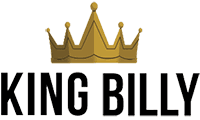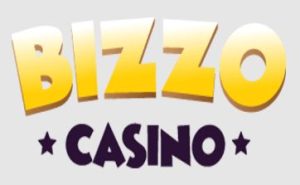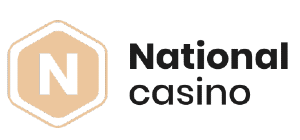
Ireland is undergoing a significant transformation in its gambling regulatory landscape, with the introduction of the Gambling Regulation Act 2024 and the establishment of the Gambling Regulatory Authority of Ireland (GRAI). This review provides an expert analysis of the current casino gambling laws in Ireland, their implications for operators and players, and how the new legal framework aims to balance consumer protection with industry innovation.
Introduction to Ireland’s Gambling Law Reform
For decades, Ireland’s gambling laws were governed by outdated legislation, some dating back to the Betting Act of 1931. These laws failed to address the complexities of modern gambling, especially the rise of online casinos and digital betting platforms. Recognizing the urgent need for reform, the Irish government passed the Gambling Regulation Act 2024, which repeals previous laws and creates a unified, modern regulatory framework.
The Act came into effect in early 2025, marking a new era for gambling in Ireland. Central to this reform is the creation of the Gambling Regulatory Authority of Ireland (GRAI), an independent statutory body tasked with licensing, regulating, and overseeing all gambling activities in the country.
The Gambling Regulatory Authority of Ireland (GRAI)
The GRAI is the cornerstone of Ireland’s revamped gambling regime. Operational since March 5, 2025, the Authority is led by CEO Anne-Marie Caulfield and a board of seven appointed members with expertise in regulation, healthcare, and legal affairs.
Key Responsibilities of GRAI:
-
Licensing: All gambling operators, including casinos, bookmakers, online platforms, and charitable organizations, must obtain a license from the GRAI to operate legally in Ireland.
-
Regulation and Enforcement: The GRAI monitors compliance with gambling laws, investigates breaches, and enforces penalties when necessary.
-
Consumer Protection: The Authority implements safeguards to protect vulnerable individuals, including children and those at risk of gambling addiction.
-
Advertising Control: It restricts gambling advertising and sponsorship to reduce exposure to minors and vulnerable groups.
-
National Self-Exclusion Register: A centralized system allowing individuals to exclude themselves from all licensed gambling operators.
-
Social Impact Fund: A fund supported by gambling operators to finance responsible gambling initiatives and treatment programs.
This comprehensive remit reflects Ireland’s commitment to a safer, more transparent gambling environment.
Licensing and Regulatory Framework
Licensing Requirements
Under the new framework, no gambling business may operate legally without a GRAI license. This applies to all forms of gambling, including:
-
Physical casinos and betting shops
-
Online casinos and sportsbooks
-
Lottery operators (excluding the National Lottery)
-
Charitable gaming events
Operators must demonstrate compliance with strict criteria covering financial stability, fair gaming practices, anti-money laundering measures, and social responsibility policies.
Application Process and Timeline
The GRAI has established a licensing portal to streamline applications. While initial licenses are expected to be issued by late 2025, operators are encouraged to register interest early to ensure compliance.
Enforcement and Penalties
Failure to obtain a license or breaches of licensing conditions can result in severe penalties, including fines, license revocation, and criminal prosecution. The GRAI’s enforcement powers are designed to uphold the integrity of Ireland’s gambling sector.
Consumer Protections and Responsible Gambling Measures
One of the most significant aspects of Ireland’s new gambling law is its focus on minimizing gambling-related harm.
National Self-Exclusion Register
The National Gambling Exclusion Register enables individuals to exclude themselves from all licensed gambling platforms in Ireland. This centralized system simplifies self-exclusion, making it easier for vulnerable players to control their gambling habits.
Advertising and Promotion Restrictions
To protect minors and vulnerable groups, the Act imposes strict rules on gambling advertising:
-
Gambling ads on TV and radio are banned between 5:30 AM and 9:00 PM.
-
Social media gambling promotions require explicit consumer opt-in.
-
The sale of gambling-branded merchandise to children or at child-attended events is prohibited.
-
Operators are banned from offering inducements such as free bets, VIP perks, and hospitality.
Financial Controls
The law prohibits gambling operators from accepting credit card payments or offering credit facilities, reducing the risk of players accumulating debt. Additionally, gambling venues cannot place ATMs on their premises, limiting impulsive cash withdrawals.
Social Responsibility Fund
Licensed operators contribute financially to a Social Impact Fund that supports research, education, and treatment programs related to problem gambling.
Impact on the Casino Industry in Ireland
For Land-Based Casinos
Physical casinos must comply with the new licensing regime, ensuring their operations meet modern standards for fairness, security, and responsible gaming. The ban on ATMs and credit facilities affects how casinos manage player funds, encouraging safer gambling practices.
For Online Casinos
Online casinos face the most significant changes, as the law brings digital gambling firmly under regulatory control. Operators must obtain GRAI licenses to offer services to Irish players legally. This move closes previous regulatory gaps, ensuring online casinos adhere to consumer protection rules and responsible gambling measures.
Advertising and Marketing Changes
Casino operators will need to adapt marketing strategies to comply with advertising restrictions. This includes limiting the timing and content of promotions and avoiding targeting minors or vulnerable populations.
Addressing Problem Gambling in Ireland
Problem gambling has become a growing public health concern in Ireland. The new legislation reflects this by embedding harm reduction strategies into the regulatory framework.
Support Services and Treatment
The GRAI collaborates with healthcare providers and addiction specialists to offer support services for those affected by gambling addiction. The Social Impact Fund finances these programs, aiming to reduce the social costs of gambling-related harm.
Public Awareness and Education
Operators are required to provide clear information on the risks of gambling and available support resources. The GRAI also runs public campaigns to raise awareness about responsible gambling.
Challenges and Opportunities Ahead
Challenges
-
Implementation Timeline: While the licensing system is on track for late 2025, some stakeholders express concerns about the transition period and readiness.
-
Industry Adaptation: Operators must adjust to new compliance requirements, advertising restrictions, and financial controls.
-
Balancing Regulation and Innovation: The GRAI must foster a regulatory environment that supports innovation while protecting consumers.
Opportunities
-
Consumer Confidence: A robust regulatory framework enhances trust in Irish gambling operators.
-
Market Growth: Clear licensing rules attract reputable operators, potentially expanding the Irish gambling market.
-
Social Responsibility Leadership: Ireland positions itself as a leader in responsible gambling regulation.
Conclusion
Ireland’s overhaul of its gambling laws through the Gambling Regulation Act 2024 and the establishment of the Gambling Regulatory Authority of Ireland marks a pivotal moment for the country’s casino and gambling industry. This modern, comprehensive legal framework addresses the challenges of 21st-century gambling by emphasizing consumer protection, responsible gaming, and industry transparency.
For Irish players and operators alike, the new laws promise a safer, fairer, and more accountable gambling environment. As Ireland moves forward with licensing and enforcement, stakeholders must stay informed and compliant to benefit from this new era of regulated gambling.


